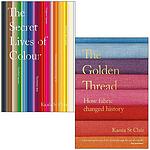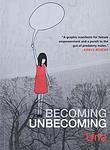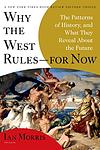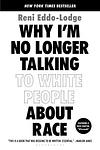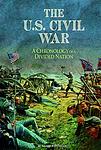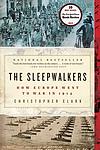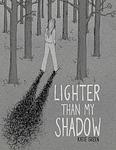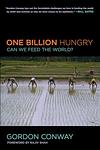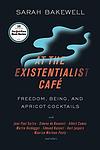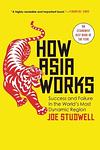The Greatest British "Nonfiction" Books Since 2010
Click to learn how this list is calculated.
This list represents a comprehensive and trusted collection of the greatest books. Developed through a specialized algorithm, it brings together 273 'best of' book lists to form a definitive guide to the world's most acclaimed books. For those interested in how these books are chosen, additional details can be found on the rankings page.
Genres
Countries
Date Range
Reading Statistics
Click the button below to see how many of these books you've read!
Download
If you're interested in downloading this list as a CSV file for use in a spreadsheet application, you can easily do so by clicking the button below. Please note that to ensure a manageable file size and faster download, the CSV will include details for only the first 500 books.
Download-
1. The Hare with Amber Eyes: A Family's Century of Art and Loss by Edmund de Waal
This book is a family memoir that traces the journey of a collection of miniature Japanese sculptures, called netsuke, through generations of a wealthy Jewish family. The narrative delves into the family's rise to prominence in the late 19th and early 20th centuries, their survival during the Nazi regime, their post-war struggles, and their eventual decline. The author uses the netsuke as a lens to explore the themes of art, loss, and family legacy.
-
2. H Is For Hawk by Helen MacDonald
"H Is For Hawk" is a memoir by Helen MacDonald about her experiences training a goshawk named Mabel after the sudden death of her father. MacDonald reflects on her grief and the challenges of training a wild bird while also delving into the history of falconry and the life of T.H. White, the author of "The Once and Future King" who also trained a goshawk. The book explores themes of loss, nature, and the complexities of human-animal relationships.
-
3. The Secret Lives Of Colour by Kassia St. Clair
This book delves into the rich history and cultural significance of colors, exploring their origins, science, and social implications. It offers a vibrant journey through a rainbow of hues, from the rarest pigments to the most ubiquitous shades, revealing fascinating stories behind each color. The narrative uncovers how colors have been produced and used in art, fashion, politics, and warfare, shaping human civilization in profound ways. Through anecdotes and meticulous research, the book presents an eye-opening perspective on the palette of our world, illustrating how deeply colors influence our experiences and our very understanding of the world around us.
-
4. Why Be Happy When You Could Be Normal? by Jeanette Winterson
This book is a deeply personal memoir about a woman's quest for identity and happiness amidst a turbulent childhood. Raised by an abusive and religiously fanatic adoptive mother in a small, industrial town in Northern England, the author struggles with her sexuality, eventually being thrown out of her home for having a relationship with another woman. She later embarks on a journey to find her biological mother, all while wrestling with her own mental health issues and trying to make sense of her place in the world. The narrative is a raw exploration of love, loss, and the power of literature as a means of escape and self-discovery.
-
5. Becoming Unbecoming by Una
This graphic novel is a poignant exploration of gender violence, identity, and the journey of healing. It intertwines the author's personal narrative of growing up in the 1970s in Northern England with the historical backdrop of the Yorkshire Ripper, a notorious serial killer targeting women. As the author grapples with her own experiences of sexual abuse and societal pressures, the book delves into themes of misogyny, shame, and the societal tendency to blame victims rather than perpetrators. Through powerful illustrations and candid prose, it offers a deeply personal account of the struggle to overcome trauma and the cultural silence surrounding sexual violence.
-
6. Why the West Rules - For Now: The Patterns of History, and What They Reveal About the Future by Ian Morris
This book is a comprehensive exploration of the historical and cultural patterns that have led to Western dominance in the world. The author uses a broad range of evidence from archaeology, genetics, and linguistics to trace the development of East and West from prehistoric times to the present, arguing that physical geography, rather than culture, religion, or great men, is the primary driving force behind the rise of the West. The book also offers a forecast for the future, predicting a shift in global power from the West to the East.
-
7. Through the Language Glass: Why the World Looks Different in Other Languages by Guy Deutscher
This book explores the link between language and perception, challenging the conventional belief that languages are only tools for describing reality and do not influence the way we perceive the world. The author delves into how different languages can shape the way their speakers understand and interact with their surroundings, arguing that linguistic differences can significantly impact cognition and perception. The book combines linguistic analysis, cultural history, and cognitive science to provide a fascinating examination of how our mother tongue can affect our cognitive processes, including color perception and spatial orientation.
-
8. Midnight In Chernobyl by Adam Higginbotham
"Midnight In Chernobyl" is a non-fiction book that tells the story of the 1986 Chernobyl nuclear disaster. The book provides a detailed account of the events leading up to the explosion, the immediate aftermath, and the long-term effects of the disaster. It also explores the political and social context of Soviet Ukraine at the time, and the impact that the disaster had on the country and the world. The book draws on interviews with survivors, officials, and experts, as well as archival documents and scientific research, to provide a comprehensive and compelling narrative of one of the worst nuclear accidents in history.
-
9. Why I'm No Longer Talking To White People About Race by Reni Eddo-Lodge, Ana Camallonga
The book in question is a powerful and thought-provoking exploration of race, structural racism, and the black experience in a predominantly white society. It delves into the historical roots of racial inequality, the failures of the mainstream feminist movement to address intersectionality, and the ongoing challenges faced by people of color in the realms of politics, employment, and the justice system. The author articulately expresses her frustration with the lack of understanding and denial of systemic racism by white individuals, which has led her to the titular conclusion. Through personal narrative and incisive analysis, the book serves as a call to action for meaningful conversation and systemic change.
-
10. A World On Fire:Britain’s Crucial Role In The American Civil War by Amanda Kolpin, Amanda Peterson, Susan S. Wittman
"A World on Fire" is a comprehensive account of Britain's involvement in the American Civil War. The book explores the political, economic, and social factors that influenced Britain's decision to remain neutral, despite strong sympathies for the Confederacy. It also delves into the impact of the war on British society, including the role of British citizens in the conflict and the effects of the Union blockade on British trade. The authors provide a detailed and engaging narrative of this often-overlooked aspect of Civil War history.
-
11. Arguably: Essays by Christopher Hitchens
"Arguably: Essays" is a collection of essays written by Christopher Hitchens, covering topics ranging from politics, literature, and religion to popular culture, sports, and travel. Hitchens was known for his sharp wit, critical thinking, and fearless approach to controversial issues, and this book showcases his best writing over the years. The essays are thought-provoking, insightful, and often humorous, making for an engaging read that challenges readers to think deeply about the world around them.
-
12. A History of the World in 100 Objects by Neil MacGregor
This book offers a unique perspective on world history, telling the story of humanity through the examination of 100 man-made objects. The author, a museum director, uses items from the British Museum, ranging from a 2 million-year-old Olduvai stone cutting tool to a contemporary credit card, to explore various themes such as trade, religion, art, science, and politics. The book provides a fascinating lens through which to view the evolution of human civilization.
-
13. The Sleepwalkers: How Europe Went To War In 1914 by Christopher Clark
"The Sleepwalkers" by Christopher Clark is a comprehensive account of the events leading up to World War I. The book argues that the war was not caused by any one nation or individual, but rather a combination of factors including nationalism, alliances, and miscommunication. Clark explores the complex political landscape of Europe in the early 20th century and the actions of key players such as Kaiser Wilhelm II and Archduke Franz Ferdinand. The book provides a detailed analysis of the events leading up to the war and challenges traditional narratives of blame and responsibility.
-
14. Penelope Fitzgerald: A Life by Hermione Lee
"Penelope Fitzgerald: A Life" by Hermione Lee is a biography of the English novelist and poet Penelope Fitzgerald. The book covers Fitzgerald's life from her childhood to her death, including her career as a teacher, her time working for the BBC, and her success as a writer. Lee delves into Fitzgerald's personal life, including her marriages and the struggles she faced as a single mother. The biography also explores Fitzgerald's writing process and the themes that run through her novels, including the importance of memory and the complexities of human relationships.
-
15. The Rational Optimist by Matt Ridley
This book presents an invigorating perspective on the evolution of human society through the lens of economic and cultural progress. It argues that, contrary to popular pessimism, life has been getting progressively better for most people due to the inherent human tendency to exchange and innovate. The author posits that this process of exchange and specialization has been the driving force behind the remarkable increases in prosperity and quality of life over the centuries. By examining historical trends and data, the narrative challenges the doom-and-gloom outlook, suggesting that rational optimism is not only justified but necessary for continued progress. The book encourages readers to embrace the potential for future advancements and the continued improvement of the human condition through the power of rational thought and optimistic outlook.
-
16. Beyond The Crash by Gordon Brown
In "Beyond The Crash," the author delves into the global financial crisis of 2008, providing an insightful analysis of its causes, consequences, and the urgent need for international cooperation to prevent future economic disasters. Drawing from his experience as a key political figure during the crisis, he offers a unique perspective on the actions taken to stabilize the global economy and outlines a comprehensive plan for sustainable economic recovery. The book emphasizes the importance of global governance reforms, advocating for policies that promote growth, job creation, and equitable distribution of wealth to ensure a more secure and prosperous future for all.
-
17. Lighter Than My Shadow by Katie Green
This graphic memoir is a powerful and deeply personal exploration of a young woman's struggle with eating disorders and trauma. Through evocative hand-drawn illustrations, it chronicles her journey from early signs of anorexia in childhood, through years of battle with her inner demons, to eventual recovery. The narrative delves into the complexities of mental health, the impact of abuse, and the resilience of the human spirit. The author's raw honesty and the visual storytelling create an engaging and poignant tale that brings to light the silent suffering of those dealing with similar issues, offering hope and understanding to others on their path to healing.
-
18. The Magic Of Reality by Richard Dawkins
This book is a fascinating exploration of the natural world, blending scientific rigor with the sheer wonder of discovery. It aims to demystify the universe by explaining phenomena that have long been shrouded in myth and superstition through the lens of science and reason. By examining a series of questions that have intrigued humans for centuries, the book systematically debunks myths and legends by presenting the scientific facts in a way that is accessible and engaging. Through this approach, it celebrates the beauty and complexity of the world, encouraging curiosity and a deeper understanding of reality as revealed through science.
-
19. The Headspace Guide To Meditation And Mindfulness by Andy Puddicombe
This book serves as a comprehensive introduction to the practices of meditation and mindfulness, aimed at beginners and seasoned practitioners alike. Written by a former Buddhist monk with a talent for demystifying Eastern practices for Western audiences, it offers practical advice, personal anecdotes, and simple exercises designed to integrate mindfulness into everyday life. The author emphasizes the importance of dedicating just ten minutes a day to meditation, arguing that this small commitment can lead to significant improvements in stress levels, focus, and overall happiness. The guide is both an instructional manual and a persuasive argument for making mindfulness a permanent part of one's life.
-
20. Stuff Matters: The Strange Stories Of The Marvellous Materials That Shape Our Man Made World by Mark Miodownik
In this captivating book, the author explores the fascinating world of materials that surround us, revealing their hidden stories and remarkable properties. From the glass in our windows to the concrete in our buildings, Miodownik takes readers on a journey through the history, science, and cultural significance of everyday materials. With a blend of personal anecdotes, scientific explanations, and historical context, he showcases the marvels of materials and their impact on our lives, ultimately highlighting the beauty and complexity of the man-made world we inhabit.
-
21. One Billion Hungry by Gordon Conway
This book provides a comprehensive examination of the global hunger crisis, emphasizing the urgent need for sustainable solutions to feed a rapidly growing world population, projected to reach nine billion by 2050. It delves into the complexities of food security, exploring innovative approaches to increase agricultural productivity, enhance nutritional value, and ensure equitable access to food. The author, an expert in sustainable agriculture, argues for a multifaceted strategy that combines advancements in science and technology with policy reforms and community engagement. By presenting a blend of case studies, research findings, and personal insights, the book aims to inspire action and optimism in addressing one of the most critical challenges of our time: ensuring that a billion people currently facing hunger have access to sufficient, nutritious food.
-
22. At The Existentialist Café: Freedom, Being, And Apricot Cocktails by Sarah Bakewell
"At The Existentialist Café" is a non-fiction book that explores the lives and ideas of a group of philosophers known as the existentialists. The book takes readers on a journey through the cafes of Paris in the 1930s and 40s, where philosophers such as Jean-Paul Sartre, Simone de Beauvoir, and Maurice Merleau-Ponty would gather to discuss their ideas about freedom, being, and the meaning of life. Bakewell weaves together their personal stories, philosophical theories, and the historical context in which they lived, to create a compelling and accessible introduction to existentialism.
-
23. If The Universe Is Teeming With Aliens ... Where Is Everybody? Second Edition by Stephen Webb
This book explores the Fermi Paradox, the apparent contradiction between the high probability of extraterrestrial life in the universe and the lack of evidence for, or contact with, such civilizations. Through a comprehensive examination of various scientific theories and hypotheses, the text delves into potential reasons why humanity has yet to discover signs of alien life. It covers a wide range of topics, from the conditions necessary for life to evolve, to the possibilities of interstellar travel, and the implications of the paradox for the future of human exploration and understanding of the cosmos. The book is both an informative guide for those curious about the possibilities of life beyond Earth and a thoughtful exploration of the challenges facing the search for extraterrestrial intelligence.
-
24. How Asia Works by Joe Studwell
This book provides a comprehensive analysis of the economic development in nine Asian countries, focusing on the policies and strategies that have driven their growth. It contrasts successful economies like Japan, South Korea, and China with less successful ones in Southeast Asia, examining land reforms, manufacturing policies, and financial control. The author argues that the successful countries followed a similar developmental path by implementing land reform to support smallholder farming, focusing on manufacturing with strict productivity goals, and controlling the financial sector to support these policies. The book challenges conventional economic theories and offers insights into the mechanisms behind Asia's economic transformations.
-
25. The Myth Of The Strong Leader by Archie Brown
This book critically examines the widespread belief that strong, dominant leadership is the most effective form of governance, arguing instead for the value of leaders who are collaborative, collegial, and democratic. Through a comprehensive analysis of political leaders across different eras and countries, the work challenges the conventional wisdom that the most successful leaders are those who wield power in an autocratic or charismatic manner. Instead, it posits that truly transformative leaders are those who prioritize the empowerment of their teams and the broader populace, demonstrating that effective leadership is less about consolidating power in the hands of the few and more about distributing it in a way that fosters collective progress and democratic engagement.
Reading Statistics
Click the button below to see how many of these books you've read!
Download
If you're interested in downloading this list as a CSV file for use in a spreadsheet application, you can easily do so by clicking the button below. Please note that to ensure a manageable file size and faster download, the CSV will include details for only the first 500 books.
Download

